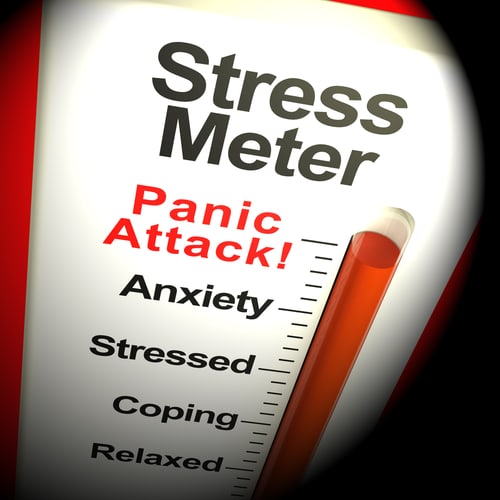By: Design for Change Recovery
Categories:
The Difference Between Being Stressed and Having Anxiety
You are here:Many people experience stress – and the effects can feel unbearable, especially if the circumstances surrounding that stress seem never-ending. Factors leading to chronic stress may include: job related concerns (losing a job, finding a job, or enduring a job where one is dissatisfied), relationship issues, health/financial concerns, and more.
Stress is primarily a physical response – when stressed, the body believes itself to be under attack, and therefore goes into “fight or flight” mode. The brain releases a mixture of chemicals and hormones, such as adrenaline, cortisol, and norepinephrine to prepare the body for a response. Various responses occur from here, including blood moving to the muscles to shutting down bodily functions, such as digestion.
Stress can have either a positive or negative impact on the person. Positive stress (otherwise known as eustress) can serve as a motivator and can push the individual to accomplish a particular task, such as studying for an exam. It can also serve to balance one’s cognitive abilities for important focus on events such as interviews. Negative stress can serve in the form of headaches, muscle tension, chest pain, fatigue, change in sex drive, upset stomach, and sleeping issues.
Stress (both positive and negative) is a natural part of life – but what about anxiety? Stress and anxiety have the potential to serve as negative, reciprocating entities that encourage one another – stress can cause anxiety, and anxiety can cause stress. If they can cause one another, then what is the difference?
Anxiety involves extreme apprehension or worry, and may involve physical symptoms that appear in stress, such as muscle tension, headaches, upset stomach, etc. However, with anxiety, one has exaggerated worries or expectations associated with potential negative outcomes of a situation. Additionally, while a triggering event may cause stress, anxiety often continues after the triggering event has ceased and is focused more on future events and outcomes.
For example, an individual may feel stressed because of a negative interaction that they had with their significant other. Even once the argument with their partner has been resolved, the person may feel anxiety about experiencing potential negative interactions with their partner. Furthermore, with stress, there is often specific causes of it, whereas with anxiety, an individual may not typically be able to pinpoint the reason for their apprehension.
Here are a few common phrases that indicate the difference between stress and anxiety:
Stress: “My stomach has been hurting so much lately – the deadline for my homework is tomorrow and it’s stressing me out.”
Anxiety: “What if I fail my homework assignment that’s due tomorrow? Even if I do pass, I doubt I’ll get more than a passing grade…this is going to ruin my GPA that I worked so hard for.”
Whether a person suffers from stress, anxiety, or both interchangeably, there are many tools out there to assist someone with getting through this. Proper medication prescribed by a doctor, therapy, relaxation techniques, and proper nutrition are just some of the ways that a person can better manage their stress or anxiety. Each person is different, and they need to choose an action plan that best suits their needs. Don’t worry – the road to recovery is not far away, and with so many resources available, one can easily discover the best tools that will work for them.
Life brings challenges that a foundation in recovery can help overcome. Design For Change helps clients change their lives one step at a time for long term recovery. Call us today for information on our residential treatment programs: (877) 267-3646


